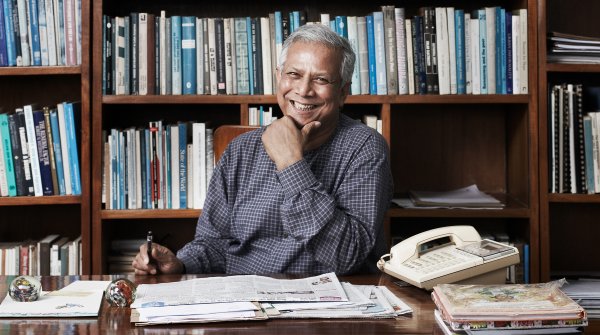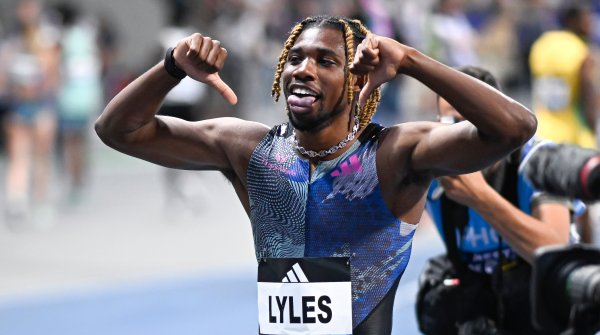This premiere of our good news delights us from the bottom of our hearts:For the first time we report about a sportsman a second time in our column . Because basketball star Paul Zipser could win something more important than a championship title - namely his life. The FC Bayern player was operated on and saved shortly before his club's decisive - lost - final due to a congenital vascular malformation on his brain. The question that many fans of the lively Zipser asked themselves afterwards has now been answered in the best possible way. Yes, he can continue to play basketball. But not only that: His club just extended his contract until 2024. He is "boundlessly grateful" to his club, "now during rehab there is no better place in the world for me than here at FC Bayern anyway". When exactly he will also play again is still open. But his goals are refreshingly ambitious, there is no sign of a break due to the life-threatening illness - "finally winning the championship again" is what the former NBA player is all about.
The "real" Tour de France riders had a team hotel, he only had a tent. The stars of the Tour were kneaded every day by masseurs, he ate canned food: And yet Lachlan Morton arrived in Paris five days before the peloton with 2,000 additional kilometers in his legs. Quasi on the side, he also collected over 400,000 euros for charity, while the best of the pro cyclists in the real Tour were showered with riches by their sponsors. What a heroic story we get to celebrate here. But from the start: Morton, who hails from Australia, was - as expected - not nominated by his own team for this year's Tour. So the 29-year-old decided to go out on his own in search of the true spirit of the Tour de France. He started one hour after the registered riders. Like the starters in the first Tour of 1903, when riders had to cover up to 470 kilometres a day, Morton also rode extremely long daily stages. With sandals on his feet, he pedaled 5510 kilometers. On the social networks, Morton collected money on the side during his alternative tour for the "World Bicycle Relief", which donates bicycles to people in developing countries. After all - a bottle of champagne was ready when he reached the Champs-Elysées at 5:30 a.m. on July 13.
The world swimming federation FINA has earned this head-washing - and maybe it will finally lead to a rethinking in a federation. After protests, accusations of discrimination, simply concentrated anger, FINA announced that it would reconsider its decision not to allow special swimming caps at the Olympic Games. The caps are especially meant for thick, curly hair. For dreads and afros, for instance. Manufacturer Soul Cap from Great Britain wanted to bring the bathing caps in oversizes to the games and thus do a service especially to black swimmers. The unbelievable rejection of FINA: The swimming caps, which are particularly suitable for black swimmers*, would "not correspond to the natural head shape". Now, after worldwide protests, FINA finally wants to think about whether it should really presume a definition of what a natural head shape is. We hope that this head washing has triggered more than just a thought process.
In themselves, at least in advanced adulthood, birthdays are the sad indication that the physical capacity continues to evaporate. This birthday, on the other hand, was quite different. The German Disabled Sports Association (DBS) turned 70 these days and probably never before has it been so bursting with strength on a round birthday. "These are plump 70 years, which have led to the fact that our competitive athletes are financially on a par with the Olympic athletes, that our amateur athletes can fall back on many clubs and halls, that the regular sports clubs have also opened up," rejoiced DBS President Friedhelm Julius Beucher on Deutschlandfunk. We now wish the federation the fulfilment of its greatest birthday wish: that its long jump legend Markus Rehm will still receive approval from the IOC for the Olympic Games in Tokyo at short notice. Rehm last jumped 8.62 metres - if he is admitted, he could even dream of gold with this distance.
He is one of the greats in Formula 1, perhaps even the greatest. But he is, above all, more than a pure racing driver - Lewis Hamilton is a man who can also fight beyond the race track with a tenacity that distinguishes champions. So after a good year and a half of work by a commission he appointed, Hamilton unveiled a report on diversity in motorsport. "I look back at my younger self and wish it was different. I want to be part of that change," said the driver, who was shaped by his own experiences of disadvantage because of the colour of his skin. If he can make a difference now, it would be "the most valuable thing" for me. But the Hamilton report shows that there is still a lot of work to be done. In the British motorsport industry, according to the report, black students are still structurally thwarted to this day, in addition to systemic disadvantages for young black people at all levels of the education system. But who, if not Lewis Hamilton, should be able to successfully shake up these grievances?
It's only a British fourth division club, sure. It's not Arsenal or Chelsea. But this week, for us, Leyton Orient from the British capital is bigger than the flagship London clubs. Because while outrage only gradually swelled over the racist outbursts against Britain's penalty misses in the European Championship final, Leyton Orient officials simply acted. A so-called fan who insulted the dark-skinned British penalty misses on Twitter on Monday night was handed a three-year stadium ban before the end of the day. The man was simply refunded the money for his season ticket with no opportunity to appeal. To this, the club directly issued a statement for diversity: "The club is very proud of its diverse history and continues to work with local authorities and bodies to bring about change."
Many expected Novak Djokovic to reach the men's final at Wimbledon. But certainly not with Marija Cicak. Those responsible at the All England Club also seemed to be a little uncomfortable with the fact that it was only in 2021 that they placed a woman in the grass court umpire's chair for the first time. The only somewhat hidden, virtually under the radar, they announced before last Sunday's final that the 43-year-old Cicak would officiate the match between Djokovic and Matteo Berrettini. "The first female Chair Umpire of the Gentlemen's Singles Final at Wimbledon," the makers announced. And we say, finally, Wimbledon! That was practically like a tiebreaker in an interminably long fifth set now, with you guys turning the match in your favor after all. After all, female referees have long had a very different standing in tennis than, say, in football. Even the biggest tantrums regularly fizzle out when the men, racquet in hand, try to show off to the sovereign women in the chair.
- Awards
- Mountain sports
- Bike
- Fitness
- Health
- ISPO Munich
- Running
- Brands
- Sustainability
- Olympia
- OutDoor
- Promotion
- Sports Business
- Textrends
- Triathlon
- Water sports
- Winter sports
- eSports
- SportsTech
- OutDoor by ISPO
- Heroes
- Transformation
- Sport Fashion
- Urban Culture
- Challenges of a CEO
- Trade fairs
- Sports
- Find the Balance
- Product reviews
- Newsletter Exclusive Area
- Magazine




